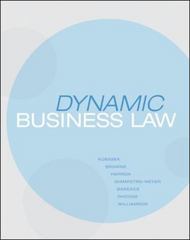Question
Suppose the price level in the US is 150 while the corresponding price level in the UK is 100. If the nominal exchange rate is
Suppose the price level in the US is 150 while the corresponding price level in the UK is 100. If the nominal exchange rate is e=2/3/$, what is the real exchange rate between the US dollar and the British pound (that is, how many baskets of British goods can be purchased with one corresponding basket of US goods)?
1
2
3/2
2/3
3
During 1960-1990, the cost of a representative basket of goods produced in Japan steadily rose compared to a similar basket of goods produced in the US, when both baskets were evaluated in the same currency using the spot market exchange rate. Which one of the following factors contributed to that long-term real exchange rate appreciation?
Faster growth of government expenditure in the US compared to that in Japan
Faster productivity growth of non-tradable sector in Japan compared to that in the US
Faster productivity growth of tradable sector in the US compared to that in Japan
Faster productivity growth of tradable sector in Japan compared to that in the US
During 1980-2008, the Chinese government followed a successful policy of increasing the productivity of the country's tradable sectors much faster than was the case in the rest of the world. If this policy had continued over the 2009-2016 period and if the productivity in China's non-tradable sector had grown at the same rate as that in the rest of the world, what would have been the impact on the real exchange rate of the Chinese currency, the yuan, vis--vis the US dollar?
The real exchange rate of the yuan would have remained unchanged vis--vis the US dollar.
The real exchange rate of the yuan would have appreciated vis--vis the US dollar.
The real exchange rate of the yuan would have depreciated vis--vis the US dollar.
The real exchange rate of the yuan may have appreciated, depreciated, or remained unchanged vis--vis the US dollar; the impact cannot be predicted.
The real exchange rate of the yuan would have first depreciated and then appreciated vis--vis the US dollar.
Suppose the government of the United States introduces a permanent tax reduction without cutting expenditure over the next several years. The plan will go into effect next year. Assuming that tradables' prices in foreign currency are given, what will be the impact of this policy on the real exchange rate of the dollar vis--vis other currencies a few years from now?
The real exchange rate of the US dollar will depreciate.
The real exchange rate of the US dollar will appreciate.
The real exchange rate of the US dollar will remain unchanged.
The real exchange rate of the US dollar will first depreciate and then appreciate.
The real exchange rate of the US dollar may appreciate, depreciate, or remain unchanged.
Which of the following reasons may account for the failure of the law of one price?
Trade restrictions
Transportation costs
Imperfect competition
All of the above
None of the above
The PPP hypothesis implies that the real exchange rate must be equal to which of the following? Select all that apply.
eP/P*, where P is the aggregate price level in home country, P* in foreign country
1
P*/P, where P is the aggregate price level in home country, P* in foreign country
eP*/P, where P is the aggregate price level in home country, P* in foreign country
The prices of the inputs used for the production of airplanes in United States will be included in which of the two price indices?
Entirely in the tradables' price index, PT
Entirely in the non-tradables' price index, PN
Partly in PT and partly in PN
None of the above
The real exchange rate of an economy _________ when the relative price of non-tradables to tradables _________.
Rises; rises
Remains unchanged; rises
Rises; declines
Declines; rises
In the long run, the relative price of non-tradables to tradables is determined by the rate of growth of money supply.
True
False
Suppose the productivity of the non-tradables sector in the Pakistan economy permanently reduces due to a natural calamity while the tradable sector remains unaffected. If all economic policies and other exogenous events in all countries remain unchanged, in the long-run, the real exchange rate of Pakistani Rupee vis--vis the US dollar:
Remains unchanged
Appreciates
Depreciates
May appreciate, depreciate, or remain unchanged; the impact cannot be predicted
Step by Step Solution
There are 3 Steps involved in it
Step: 1

Get Instant Access to Expert-Tailored Solutions
See step-by-step solutions with expert insights and AI powered tools for academic success
Step: 2

Step: 3

Ace Your Homework with AI
Get the answers you need in no time with our AI-driven, step-by-step assistance
Get Started


